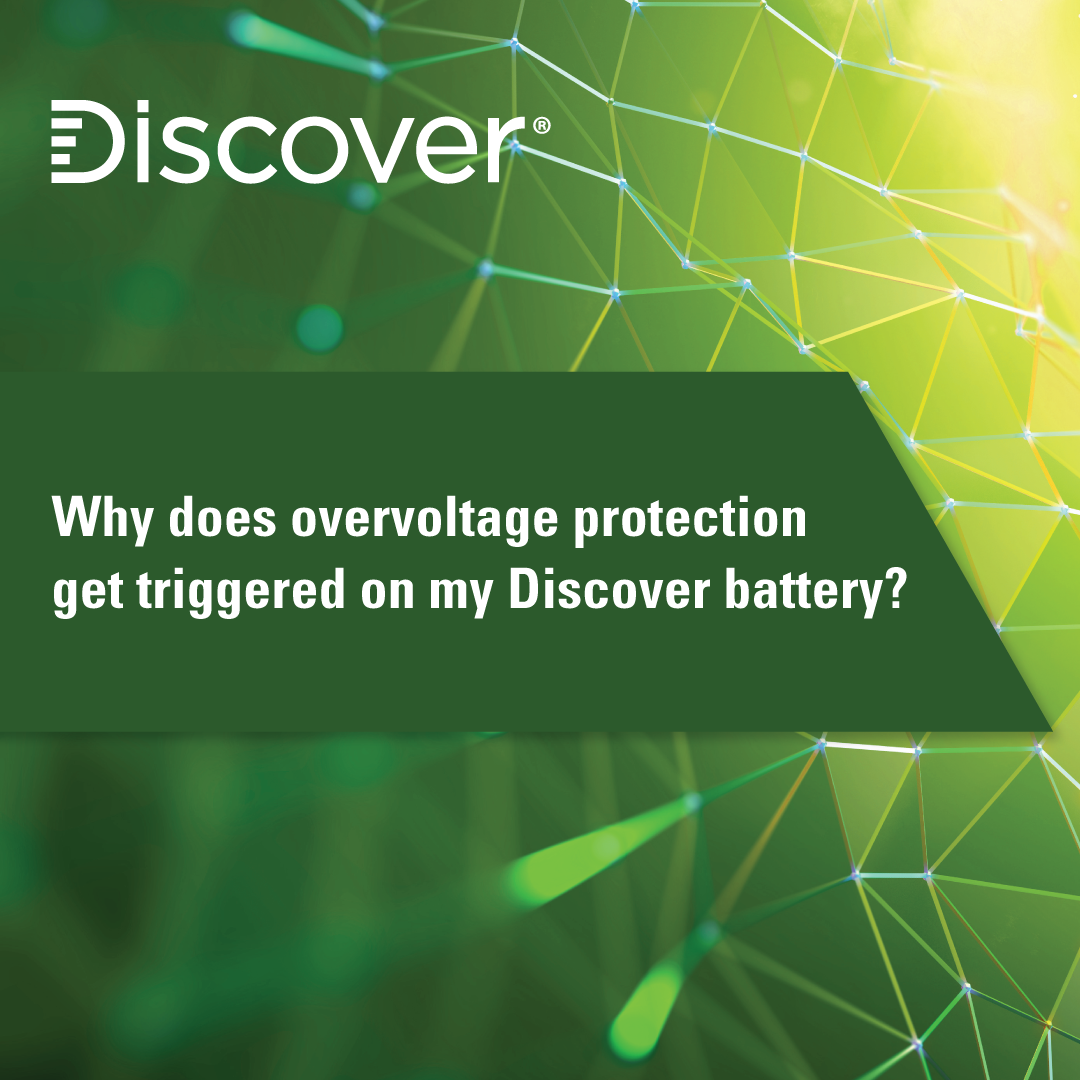
Dear Discover Battery,
I am using the Lithium Blue battery on my RV and charging with my alternator, which cranks out 14.4 Vdc. Why does the battery BMS trigger overvoltage protection even though overvoltage protection is 14.6 Vdc? Other batteries I've used don't have this issue.
Answer:
First, please consider that overvoltage protection is provided to protect the battery from adverse conditions that could damage the battery and limit its life. The protection should not be considered an indicator of battery performance.
Regarding what's happening with the alternator, during the power generation and conversion process, it may be producing something called ripple current, which is AC voltage fluctuations riding the DC wave. The ripple current could cause overvoltage readings and trigger the BMS protections on the battery.
If other batteries do not trigger overvoltage protection due to ripple current, it may be because it does not measure the root mean square (RMS) voltage. RMS represents the same amount of power of the DC current/voltage as the average power of the alternating current/voltage. Without proper measurement, ripple current can cause transient overcharge or over-discharge, which can negatively affect the life and capacity of the battery. Voltage protections for Discover batteries are based on RMS voltages.
Another reason the ripple current does not trigger overvoltage protection on the other batteries you've used is that their protections may operate at a lower frequency and cannot detect the wave variation that can cause the overvoltage protection.
Solution:
If you have controls to reduce the voltage output, please do so. Or get an alternator that produces less ripple current.






